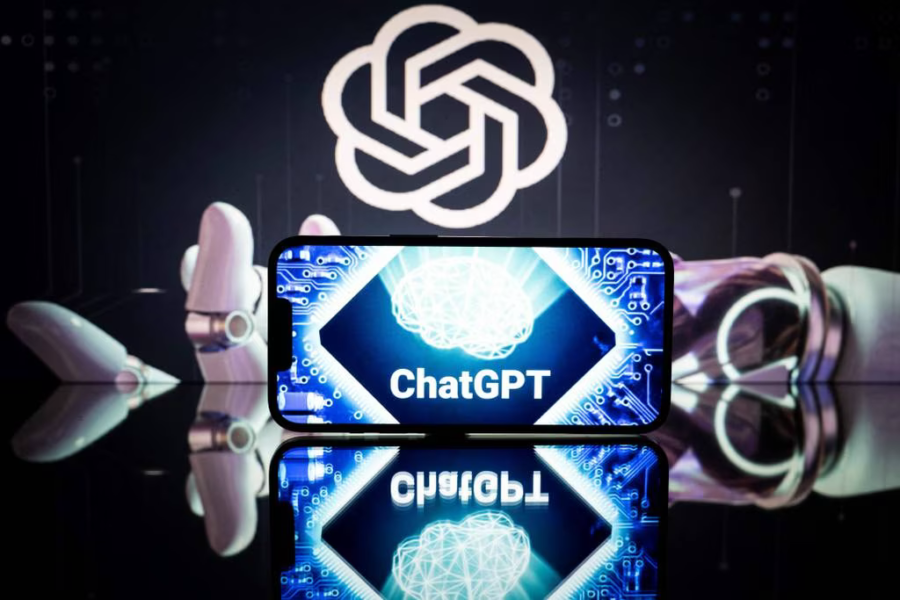How Will ChatGPT Affect Learning?
March 9, 2023
ChatGPT is the first in a new wave of AI chatbots capable of writing complex and detailed essays from a simple prompt, and there is an ongoing debate on what to do about it. Many teachers fear that the new wave of ai-assisted writing will be hard to stop and that cheating will run rampant in schools. Some school districts have already banned the bot, citing “concerns about negative impacts on student learning, and concerns regarding the safety and accuracy of contents.”
In contrast, many students are excited to use the new tool, saving them time and offering better grades. Anonymous surveys of Stanford students show that around 17% of them used the ChatGPT to help with their final exams. About 60% of them used it for brainstorming, and the other 40% used it to answer questions and write material. ChatGPT is only going to become more widespread among schools, so it’s important to consider what students and staff think of it to determine how it will be used and countered.
Ms. Costello, Pentucket’s librarian, is skeptical of whether ChatGPT can actually fool teachers. “It’s not very authentic to middle or high school writing,” she said after having tried it herself. Costello is unsure if students will actually take the steps needed to avoid detection and believes if it becomes more common, teachers will take more countermeasures against it.
Among these she suggests teachers take samples of their students’ writing to understand their real style, and to “force students to do in-class pencil and paper writing,” a method that prevents online help. In her opinion, as long as AI help is properly controlled by teachers, there shouldn’t be a massive negative impact on learning.
An anonymous Pentucket freshman has used ChatGPT to help with homework before, and plans to keep using it, saing, “I didn’t write a full essay, but I used it to write some smaller things.” However, he claimed some of his peers had gotten full essays out of the bot. As far as he knows, no teacher realized that he or others didn’t write the works themselves. “I did it because I don’t know how to write a poem. And yeah I won’t learn anything, but when will I need to write a poem in real life?”
Mrs. Treado, English teacher at Pentucket, thinks students using ChatGPT will “be to their detriment.” She believes having a tool that writes everything for students will leave their writing abilities underdeveloped and unprepared for the real world. “What are you going to do when you need to write a business email?” She said, “If the robot can write your emails for you, you’re going to be out of a job.”
An anonymous junior has said that he has highly considered using it, but is “paranoid of getting caught.” He said he was impressed after seeing what the bot can do, but wasn’t sure if teachers would be able to tell that it wasn’t his work. “If I did use it, I would edit it to make it look like something I wrote.” He said that he was capable of writing well, but ChatGPT would save a lot of time and effort.
Love it or hate it, the rise of AI tools like ChatGPT has already begun to affect schools, and their influence on learning will only increase in the future.


Amauri Ciriaco • May 20, 2024 at 11:01 am
As a person who has used AI to help with a lot of things I think students are misusing it. I feel that instead of trying to tell students not to use it teachers should teach them how to use it beneficial for brainstorming and other things instead of having the bot write the students whole paper for them. AI can be used for bad but with the right help it can be turned into a good source to find information or to brainstorm. Overall I think if AI is continued to be used how it is right now it will definitely leave a lot on the table for students they wont be able to write as well as they could but with change it can help them advance their writing.